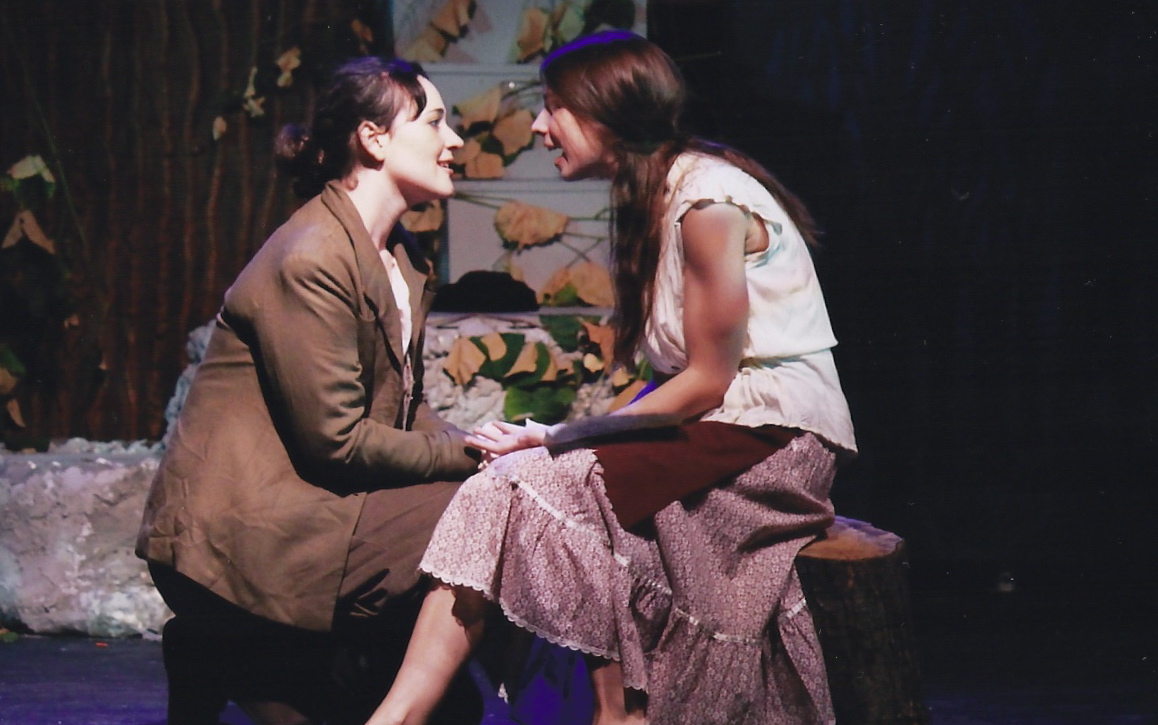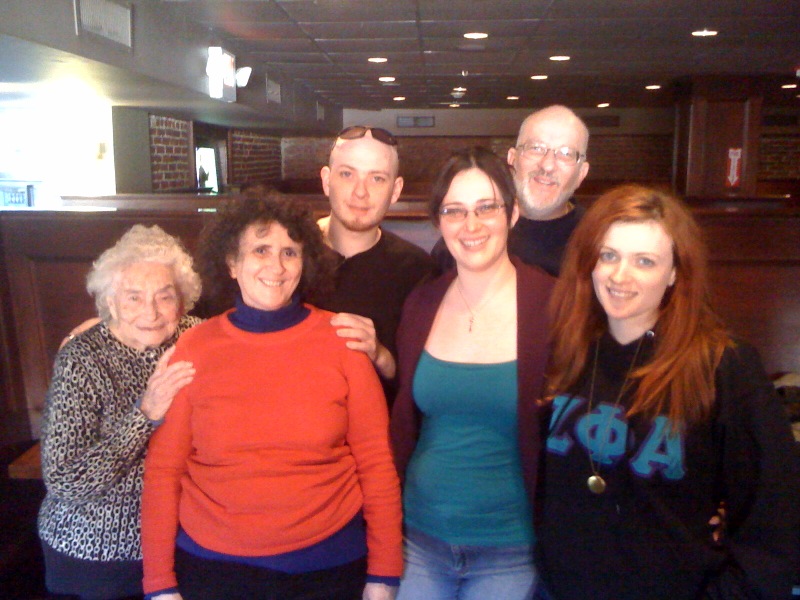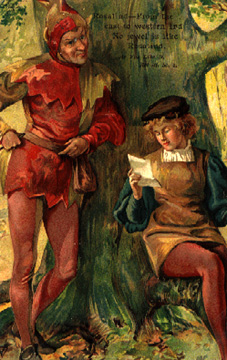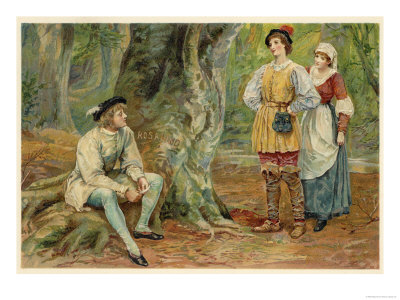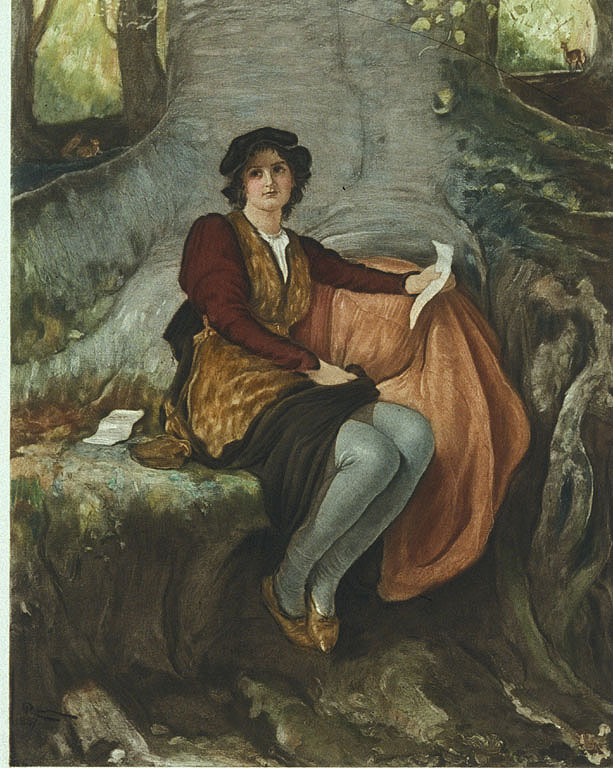So, we opened this weekend. The following is an account of my weekend as I progressed through it; my inner monologue is conveniently denoted by text in italics.
Friday Night: Opening Night
I was worried going into this because I wasn’t feeling well, which meant low energy, which did not bode well for performing Shakespeare (much less a show that relies a great deal upon my ability to carry it on my shoulders). Knowing this, I tried to apply as much comfort as possible to my state and let the rest of life roll off my back. Upside: I did not have the spare energy for my normally-crippling stage fright to sink in.
God, I forgot what it was like to be at rehearsal all week and not really have a life outside of it. Also, right, I need to remember to pack the correct makeup… not that the lighting is horribly intense.
The house was small, but I knew that I had some personal friends coming to see the show (one of whom being my aforementioned partner in crime who, due to cruel twists of fate and the fact that I considered myself fondly retired before this production, had never before seen me onstage).
Are all my costume changes going to work? They worked last night… maybe that was a fluke…
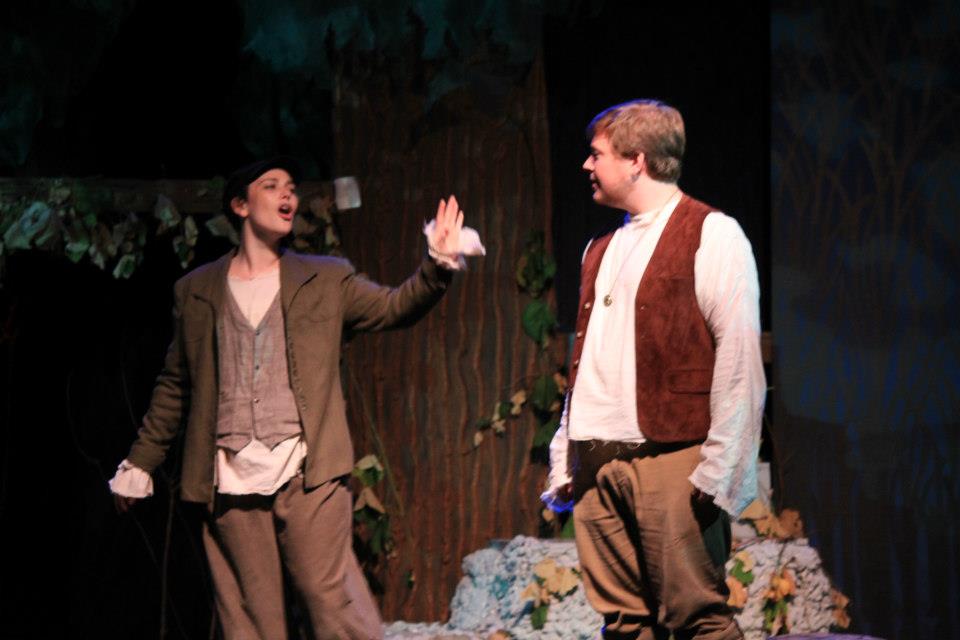
Me and Orlando… hanging out in the woods… dressed as a boy… you know, like you do.
There’s a horrifying moment, as you sit getting ready and you thank the stage manager for the fifteen call (“Fifteen!” “Thank you, fifteen!”) wherein your mind goes blank. You forget everything. You are awash in a sea of white and the only thing you can do is stare dumbfounded at yourself in the mirror, lipstick in hand, and wonder what the hell your first line is.
What is my first line? No, really, what is my first line?
The performance gets rolling and you find the ways of it. The groves, the curves, the things you need to do to give yourself the energy to spring-board into the next scene. I know when I need to rendezvous backstage with my partner to squeeze her hand, or take a moment to smile at him, or check in with her, or pre-set costume change C. And finding that rhythm is comforting, but you can’t get too comfortable because then the entire thing becomes stale.
Okay, intermission, let’s just keep pushing through…
This show, for me, is mostly about hitting the midpoint. Act one in the court is rough; it’s hard to inject those scenes with energy and they contain a great deal of exposition which the already-reeling audience is struggling to keep up with. Things don’t get fun until we hit the forest, and I don’t really get to play in the forest until act two. But once I hit that stage at the top of the act, I almost don’t leave it until the end of the show. So; you push the snowball up hill in act one, and spend act two pumping more energy into it, bouncing off your scene partners, and just letting it roll on home.
Oh good god they skipped ahead in the scene that covers my quick change. I may die. Or come onstage half dressed. Or do one then the other.
Luckily, neither happened.
Saturday; Night Two
Again, we played to an intimate but receptive house, and having those voices ring back at us in laughter, exclamations, etc. really helped to keep us going. Unfortunately, my illness got worse rather than better and even a day of rest couldn’t curtail the disgustingness that was the way I felt.
You know what I would like? I would like to do a performance in which I’m on top of my game… I wonder how quickly I can bust this whatever-it-is.
Hit act one like an inferno and we finally found the energy we needed for those first few scenes. Tapping into my darker emotions is generally easier for me to do when I’m not feeling well, tired, or a combination of both. As such, I didn’t have to work too hard to get the melancholy rolling at the plays’ start.
I would really like to die now please…
I do not recommend binding down to anyone who has any semblance of a curvy figure. I especially do not recommend it when your chest is congested and you are already at a less-than-optimal lung capacity. I spent the majority of this performance feeling like I was going to pass out.
I wonder if it would be better to faint onstage or offstage… at least if I did it onstage I’m reasonably certain that I would be able to recite the lines as I went along and may even be able to pick up where I left off when I came to.
Despite my terminal lack of energy, my scene partners advised me that I put on a solid performance and they didn’t notice a difference. Phew.
Please don’t let me drip gross things from my nose on Orlando’s shoulder during the wedding scene.
I didn’t.
Sunday: Matinee
Despite the fear that we would be playing to an empty house given our previously poorly attended performances and the fact that it was Sunday of a holiday weekend, we had a

my dressing room station at the top of the show tonight.
fair sized audience! And a few dear friends of ours even surprised us by appearing without telling us they were coming (…leading to an incident which can only be described as “frantic fact-checking while simultaneously making a quick-change”).
Unfortunately, my cold has escalated to something much more closely resembling bronchitis so my energy wasn’t anywhere near where I want it to be. I have again been assured that neither the audience nor my scene partners could tell, but I certainly knew as I tried to keep my coughing fits contained backstage and took a near-nap on the dressing room floor at intermission.
Well, at least I won’t have to push to find tears.
And I didn’t. Or to find new moments, of which there were a surprising amount during this performance. As much as I would like to think that it is because I am feeling cruddy and, thereby, I should always be feeling cruddy when playing Rosalind, I’m really looking forward to getting well over the week and hitting it hard next weekend.
During 3.2 (a scene which took some very tedious tolls during rehearsal), I was rewarded when, after a bit I do with my hands to demonstrate monsters eating each other, an older lady cooed from the audience “she’s so cute!”. Glowy actor time.
On the whole, we had a very satisfying set of performances this weekend, and I’m very much looking forward to the second half of the run. The only thing missing right now is you and I encourage you, advise you, well near implore you to make an attempt to come see what I think is one of the better shows to hit Boston this year (though I well may be just a touch biased). Tickets and show info can be found here!




